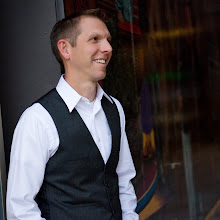At that time Joshua built an altar to the LORD, the God of Israel, on Mount Ebal, just as Moses the servant of the LORD had commanded the people of Israel, as it is written in the Book of the Law of Moses, “an altar of uncut stones, upon which no man has wielded an iron tool.” And they offered on it burnt offerings to the LORD and sacrificed peace offerings. (Joshua 8:30–31)
In his book Joshua and The Flow of Biblical History, Francis Schaeffer explains the significance of God's command to the Israelites to build "an altar of uncut stones" on Mount Ebal, a mountain on the north side of the valley of Shechem in the Promised Land. His explanation brings clarity our approach to life - which echos the very beginnings in Eden.
Two mountains border the valley of Shechem, Mount Gerizim to the south and Mount Ebal to the north. God declared these two mountains as symbols of His covenant with the Israelites. The lower mountain, Mount Gerizim, was the mountain of blessing. It represented the results of obedience to God. The higher mountain, Mount Ebal, was the mountain of cursing. It represented the curse that accompanied disobedience. Before his death, Moses gave instructions to the Israelites that when they came to this valley, they were to build an altar on Mount Ebal and offer sacrifices there.
Schaeffer explains:
It is significant that the altar was not built on Gerizim, the mountain of blessing, but on Ebal, the mountain from which was declared what would happen when the people sinned. This was a strong reminder to the people that they were not going to be perfect and that they would therefore need an altar. In this we should hear God saying, "You shouldn't sin. But when you do sin, I will give you a way to return to me, through the altar." So while the people were warned of what would occur when they sinned, they were also taught from the very beginning that there would be a way of return.
That way of return would be through an altar but an altar that did not bear the mark of human effort.
Again Schaeffer:
This special altar was not to have any works of man upon it. In this way, it was different from the brass altar that was commanded for the tabernacle. When God gave the Ten Commandments, he wanted the people to understand and never forget that an altar does not have value because of what people do to it. In other words, this was a complete negation of all humanism. God was teaching the people, "Build an altar at this crucial moment, and it has to be a special kind. Make it of earth and of stones taken right out of the field. Don't carve beautiful designs on them. Don't even square them. There is to be no human mark upon this altar."
No human marks. No fig leaves to cover our shame. No effort to make ourselves acceptable.
This is a foundational human motive, namely, to clean ourselves up. We do it with fitness, vocational/recreational achievement, parenting, and posing of all sorts. And throughout the Old Testament and the New, God is clear. "Knock it off. It's impossible for you to cover your shame and it shifts the attention to your effort and not my grace. In light of your shame, you must receive from me."
At the base of many conflicts and anxieties is this simple desire to look better while feeling the weight of our shame. The path to freedom begins at an altar that God has prepared to deal with our sin. Our shame has been removed on the Cross. This frees us from self-protection and self-promotion so that we might consider other's interests as more important than our own and truly become loving and generous people. The Gospel is the power of God for salvation.










0 comments:
Post a Comment